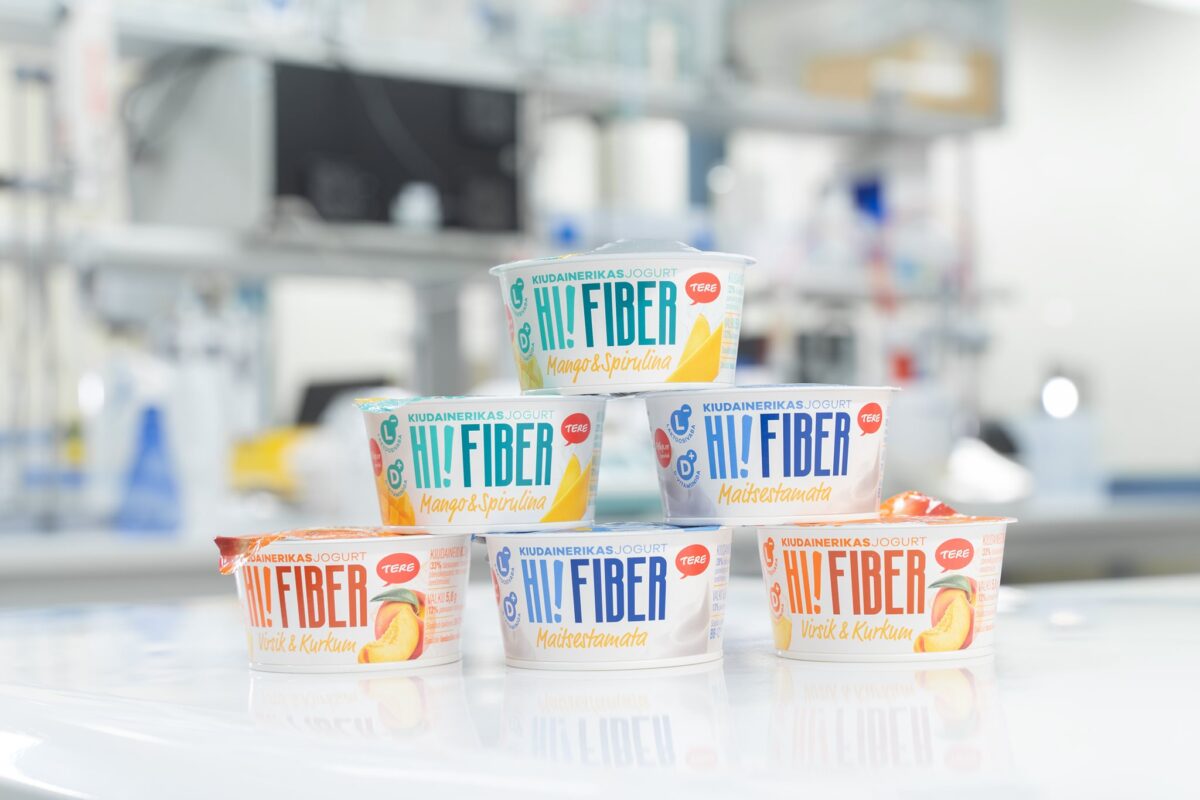The year 2020 was a great success story for our food development and microbiome department. In order to make dietary fiber more attractive to consumers, researchers at the Center for the Development of Food and Fermentation Technology (TFTAK) in collaboration with the Tere Dairy Industry developed a fibre-rich yogurt (Hi!Fiber) and conducted a study where the impact of Hi!Fiber yogurt on the human health and general well-being was analysed.
Dairy products are highly nutritious and contain almost all the nutrients necessary for the normal development of the human body but not dietary fibers. Dietary fibers improve bowel functions and feed beneficial colon bacteria. These hundreds of different species can convert dietary fibers into health supporting compounds such as butyrate or propionate, which activate immune system, stimulate hormone secretion and prevent development of several chronic diseases.
In Estonia as in ohter Western countries people eat half of the dietary fiber than recommended in the dietary guidelines (a daily intake of dietary fiber of 25–35 g). This amount is comparable to six slices of whole grain bread with a big bowl of vegetable stew. Developed Hi!Fiber yogurt contained considerable amount of dietary fibers (9.7 g/200 ml) but remained smooth and palatable as the classic version. In our study volunteers consumed 200 ml of yogurt every day within two weeks and different health characteristics were measured (blood lipids, digestive functions, and gut microbiome).
The experiments showed that yoghurt enriched with four different fibres helped to normalize bowel function as well as LDL and total cholesterol concentration in blood. Based on gut microbiota analysis we observed the increase of abundance of different butyrate-producing bacteria (Eubacterium rectale and Roseburia faecis) and their growth-promoting bacteria such as bifidobacteria. This can be explained by selected combination of dietary fibers, which composed of resistant starch and a mix of long-chain oligosaccharides. The product should be well-suited also for the people with low levels of bifidobacteria and lactobacilli in their gut microbiome, as the developed Hi!Fiber yogurt contain the recognized probiotics Bifidobacterium animalis Bb12 and Lactobacillus acidophilus La5.
The findings of this research will be published soon. Until then, the new Hi!Fiber yogurt can be enjoyed. This yogurt is a good snack rich in fibers and with a handful of berries can be a nutritionally balanced healthy light meal.

